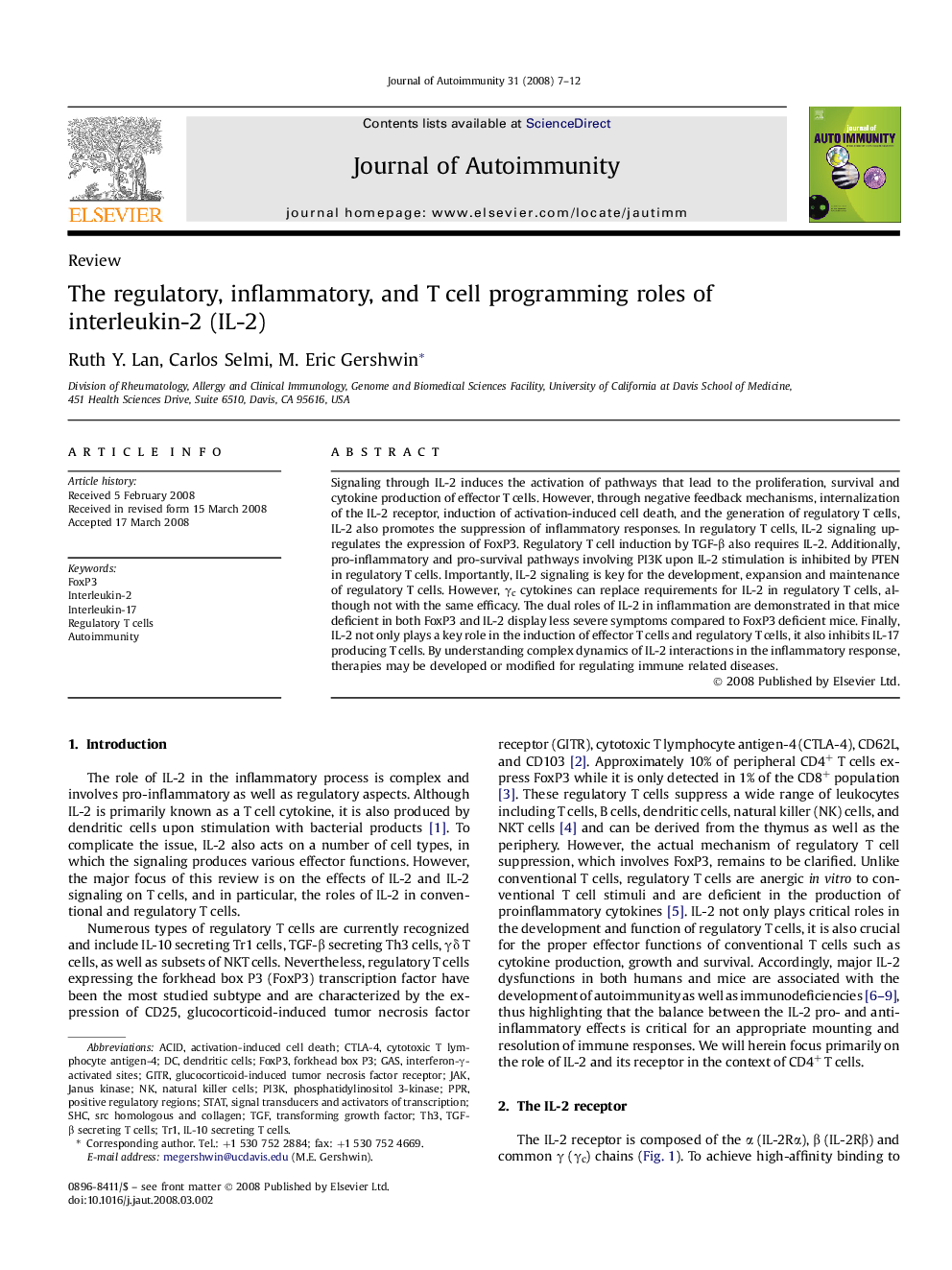| Article ID | Journal | Published Year | Pages | File Type |
|---|---|---|---|---|
| 3368222 | Journal of Autoimmunity | 2008 | 6 Pages |
Signaling through IL-2 induces the activation of pathways that lead to the proliferation, survival and cytokine production of effector T cells. However, through negative feedback mechanisms, internalization of the IL-2 receptor, induction of activation-induced cell death, and the generation of regulatory T cells, IL-2 also promotes the suppression of inflammatory responses. In regulatory T cells, IL-2 signaling upregulates the expression of FoxP3. Regulatory T cell induction by TGF-β also requires IL-2. Additionally, pro-inflammatory and pro-survival pathways involving PI3K upon IL-2 stimulation is inhibited by PTEN in regulatory T cells. Importantly, IL-2 signaling is key for the development, expansion and maintenance of regulatory T cells. However, γc cytokines can replace requirements for IL-2 in regulatory T cells, although not with the same efficacy. The dual roles of IL-2 in inflammation are demonstrated in that mice deficient in both FoxP3 and IL-2 display less severe symptoms compared to FoxP3 deficient mice. Finally, IL-2 not only plays a key role in the induction of effector T cells and regulatory T cells, it also inhibits IL-17 producing T cells. By understanding complex dynamics of IL-2 interactions in the inflammatory response, therapies may be developed or modified for regulating immune related diseases.
